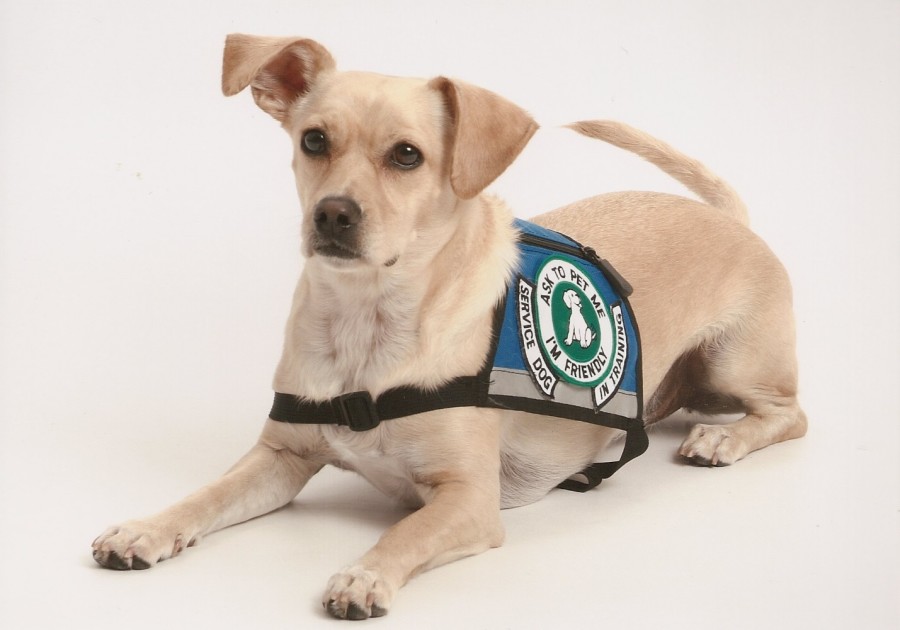Service puppies in training
Who provides service dogs?
It has been known that puppies are great companions to patients with special needs. However, not every puppy can take on the job of a service dog; they have to train. Canine Assistants is a non-profit organization that trains service dogs to support children and adults with special needs for free. Founded in 1991, the assembly has placed more than 1,700 dogs in 48 states and five countries. The age required to have a service dog has no restraint; their youngest client was five, the oldest 82.
“It isn’t a first-come, first-served system,” said Jennifer Arnold, the founder and executive director of Canine Assistants. “Each application is evaluated based on how much a dog can do to help the applicant physically, socially, emotionally and medically, and how appropriate the home is for a dog.”
Positive and emergency training
Puppies begin their schooling at five weeks old. Interacting with humans helps develop trust, as well as cognitive, socio-emotional and physical skills. These dogs learn to be prepared in any crisis and how to find a resolution for their patient. After almost two years of hard work, they “graduate” from the program and can take part in the service for more than a decade.
These dogs obviously acquire more skill than the regular pooch, including simple human tasks, such as opening and closing doors, picking up dropped items, turning lights on and off and setting off an emergency response.
A companion from the start to the end
When the time comes for a puppy to be matched with a patient, initially it is the dog who decides. Canine Assistants pre-selects a group of dogs that may have the abilities and character to work well with a particular person’s condition, and then the dog gets to make the final decision.
“It’s incredible,” Arnold said. “A dog will politely greet five people and upon reaching the sixth will go crazy as if saying, ‘Where have you been? I’ve been waiting for you!'”
From then on, these dogs lend a paw to special needs individuals throughout their lives.

